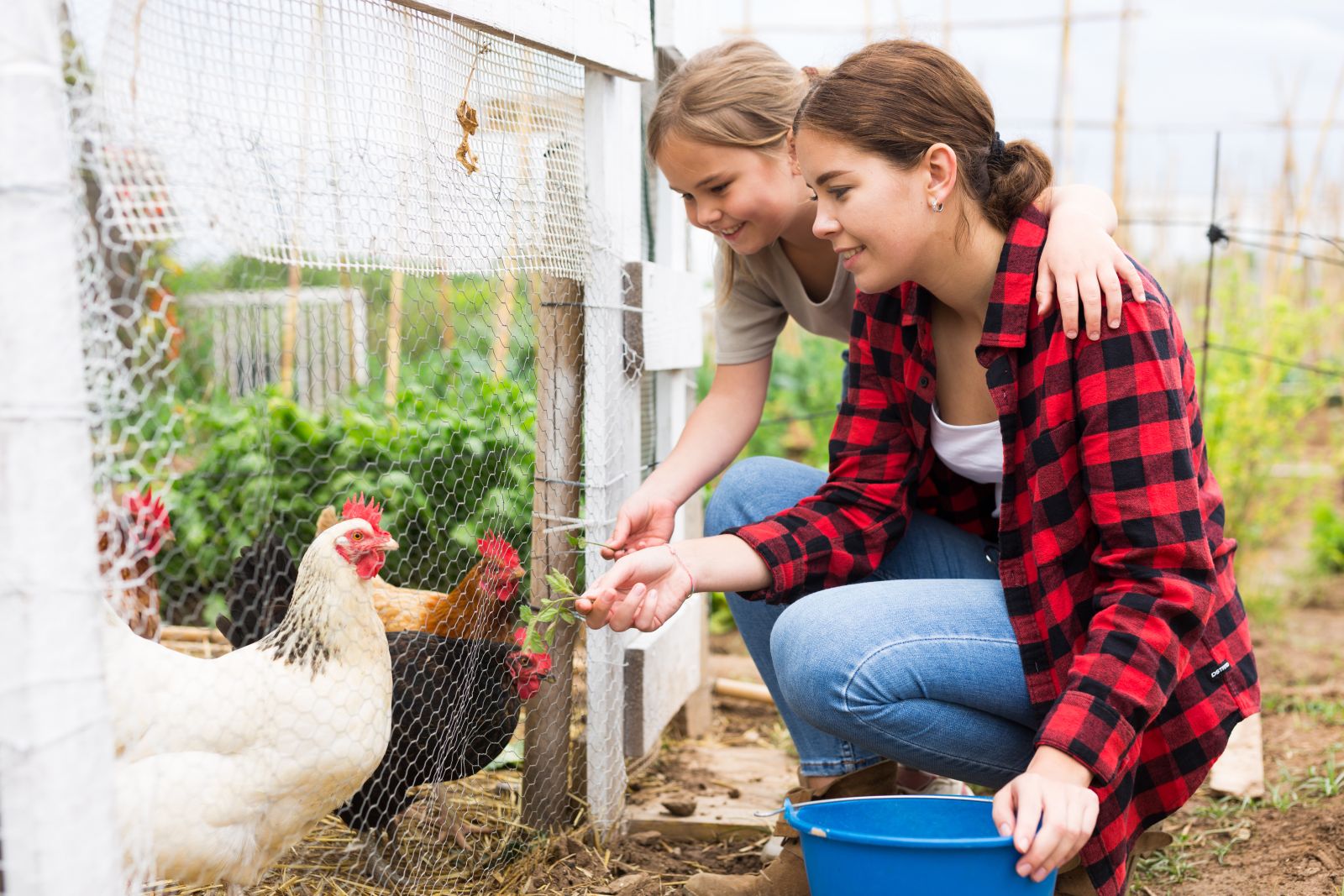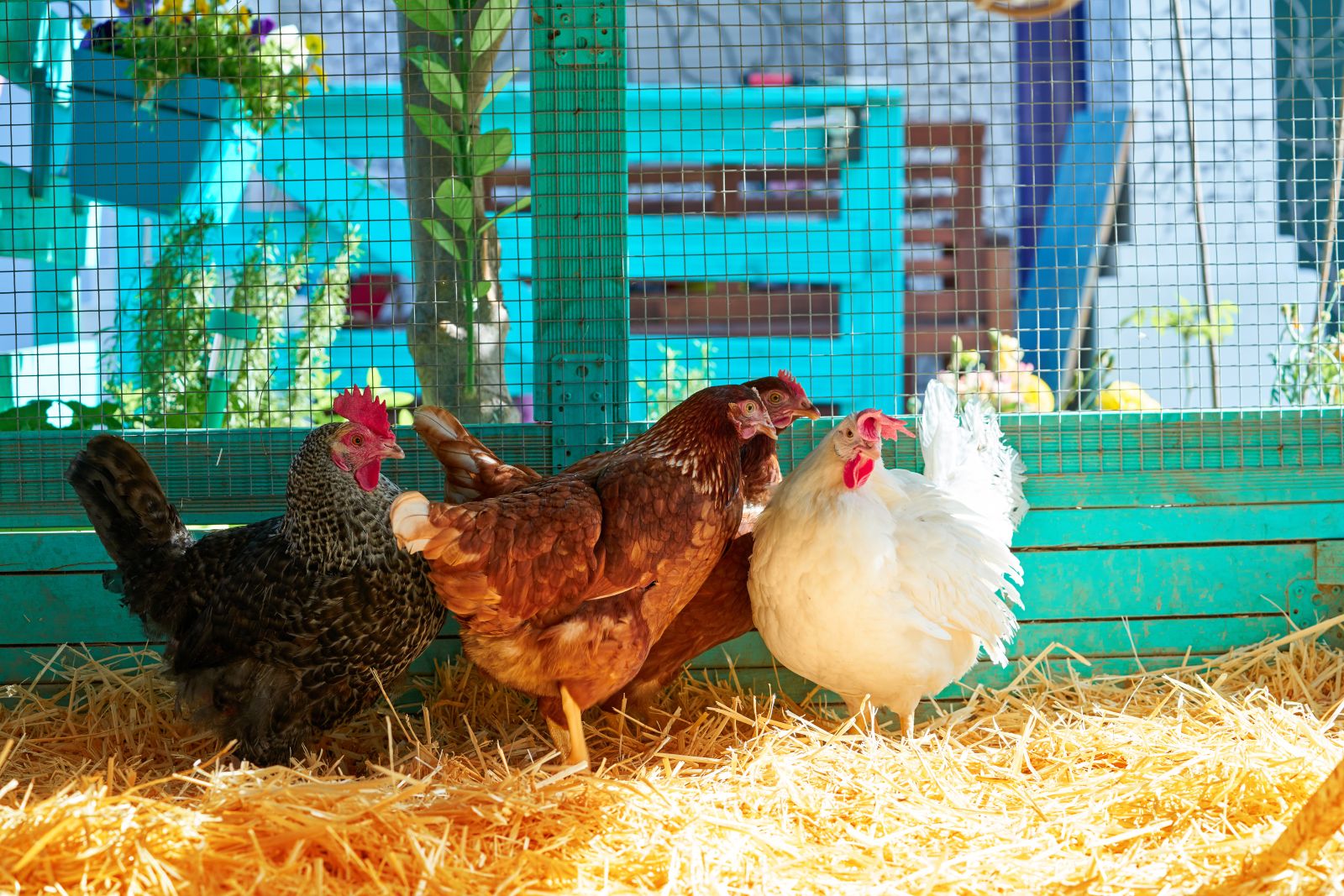Raising chickens at home has increased in popularity in recent times due to more time spent at home and rising cost of living. Chickens are relatively low maintenance, and there are also many associated benefits of keeping chickens at home. However, before you purchase your chickens, there are a few things to consider ensuring it’s the right fit for you and your home.
You may ask yourself, ‘can I keep chickens in my backyard?’ and generally, in Australia, chickens in residential areas are completely fine. Here’s a few things to consider before you go ahead with keeping chickens at home.
There are many benefits of raising chickens at home. The most obvious benefit is the eggs that hens will lay each day. Eggs are a great source of protein and other vitamins and minerals and can be eaten daily; don’t forget they are often times more flavourful than supermarket bought! Having a supply of fresh eggs daily also helps to reduce grocery bills in the long run.
.jpeg)
It’s also a great way to include some light physical activity daily by making sure you go outside to collect the eggs and check in on the chickens. Spending time outdoors and with nature is also a great way to destress and can improve your wellbeing.
If you’ve got kids, it’s a great way to incorporate some learning into their everyday lives by encouraging them to be responsible, caring and help understand how nature works. Chickens are also great as you can give them some of your food scraps which helps keep food waste to a minimum, creating a more sustainable environment.
Raising chickens at home also keeps pests at bay. If you are able to let your chickens run free in the backyard, they will eat bugs and insects that might get into your garden. Their droppings are also nutrient rich and can be used to improve the overall health of your garden. As always, it’s best to do your research before using chicken manure to ensure it’s compatible with your garden.
Chickens require a level of daily maintenance to ensure they are kept happy and thrive. While it is generally a small amount of time required, keep in mind that this needs to be done daily. If you can’t commit to daily maintenance, then chickens might not be for you.

You will want to go out and check on the chickens once or twice a day. Generally, hens will lay their eggs early in the morning – first up in the day may be a good time to collect them before you busy yourself for the rest of the day.
In the afternoons, your chickens would do well with a run around in the backyard if you have the space to do so. This is a good chance for them to stretch their legs, but also keep on top of any bugs and pests in your gardens.
Each day you should top up their water and feed, check on their sleeping area to ensure its dry and clean. You may need to sweep out any droppings to keep them comfortable and free of diseases that might their disrupt their home. By doing this, you should get to know your chickens well and be able to pick up on any injuries or illnesses with more ease.
And finally, make sure you ensure their home is safe and any maintenance is done when required to keep predators away. If you can’t keep an eye on them, make sure their enclosure is locked up securely – this is even more crucial at night when predators are out and about.
Council areas may have slightly differing rules when it comes to housing chickens in residential areas, depending on where you live. Each area will have different regulations around how many chickens you can have per square meterage and whether a license is required. Additionally, you should check the restrictions, if any, regarding the permissible size of a chicken coop or run for your chickens home. Before you purchase any chickens, it’s important to check with your local council. You will find that many metro areas allow a small number of hens to be kept without license. However, many councils will prohibit roosters unless you are on a large property with adequate distance from neighbours – once again, it’s best to check with your local council for the rules and regulations.
As a general rule, chickens require one square meter each in their chicken coop. However, chickens also need to stretch their legs each day. If your backyard is adequately fenced off, you may decide to let them run free in the backyard. Chicken runs are also a safe option if your backyard is not fenced off. All in all, chickens can be happy in a smaller area so long as they are able to have some time to run around..
More importantly for chickens, however, is their shelter. Chickens require a safe and secure home so that predators such as dogs, cats, foxes, birds of prey, snakes and more cannot get to them. Ensuring that their home can’t be easily moved or burrowed into is important. Keeping the coop clean will also help to deter vermin and rodents that also attract other wildlife. Steel chicken coops are a great way to ensure that their homes are kept clean, provide ventilation but also able to keep the chickens safe from predators. They are recommended to be anchored onto a concrete slab and can be easily locked up.
As with any animal, chickens, more specifically hens, will make some noise from time to time, however aren’t considered a noisy animal. When they feel safe and secure in their home from predators they are generally relatively calm, though can be a bit chatty at times. If they are feeling threatened, it’s likely they may make noise to notify others of their presence. Of course, if you have egg laying hens, there may be some noise before eggs are laid. They may also increase their chatter if they are a little restless, this is normally a good sign to let them out for a bit of a run.
While hens do make noise, particularly in the mornings, it is non disruptive most of the time. Roosters however are generally noisier which is why you won’t come across them in suburbia. They will crow many times a day and can be quite loud – they are usually reserved for those with large properties and few neighbours.

Overall, raising chickens at home is a very manageable and rewarding experience. With the right shelter, area and a check with your local council, you can start your own little "poultry paradise" right in your backyard. Not only will you enjoy a fresh supply of delicious eggs, but you'll also witness firsthand the joy and benefits that come from connecting with nature and caring for these feathered friends. Don’t be "chicken", give it a try!